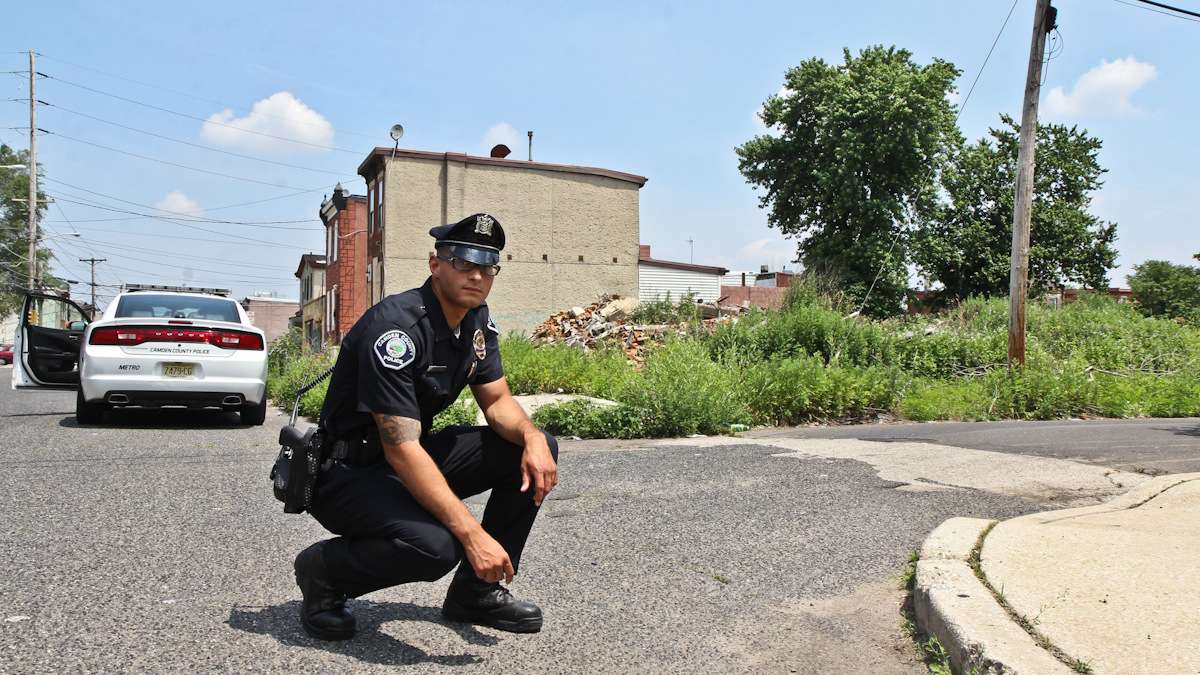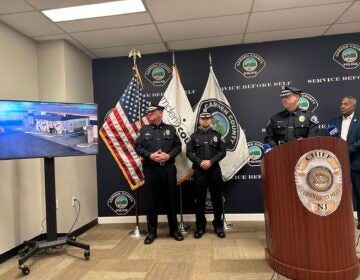New Jersey applies data mining to predict opioid overdose hot spots
State AG says it can help law enforcement get there before the next fatal overdose and help get drug users into treatment.

Police officers in Camden County are issued a manila envelope with the overdose antidote naloxone at the beginning of their shifts. Officers also receive nasal sprayers to administer the drug and rubber gloves. (Kimberly Paynter/WHYY)
New Jersey plans to use the state’s database to better predict where the next opioid overdose might happen.
Attorney General Gurbir Grewal said the state already has a lot of data about the locations of overdoses and first responders’ use of naloxone to save lives.
“We are starting to take that information to identify overdose hot spots or to integrate that with pawn shop data to see where stolen goods are being sold — and who’s selling them — and to marry all that up to have profiles of our next potential overdose victim,” he said.
The data can help law enforcement get there before the next fatal overdose and help get drug users into treatment, Grewal said. He said it can also identify areas where drugs are being sold.
It’s critical, he said, that law enforcement agencies in the state work together to deal with the opioid epidemic.
“We could have all the tools, we could have all the data, if we don’t talk to each other and share that data with each other, then it’s useless,” said Grewal. “If we sit on this information in our little silos, if Cape May doesn’t share with Bergen, if Bergen doesn’t share with the State Police, then we’re not effectively addressing the problem.”
State Police Superintendent Patrick Callaghan said law enforcement agencies are willing to share that data.
“There is just a sense of checking your ego at the door. The 9/11 Commission report pointed out what tragedies can come when you don’t share information or when you want to stay in your silo or if you want to be the one taking the credit in front of the podium,” said Callaghan.
The strategy echoes the way authorities share information about crimes to help stop the flow of illegal guns.
Grewal said the overdose and naloxone data are also being made public so residents know how the opioid epidemic is affecting their communities. It might stimulate discussion on prevention efforts, he said.
WHYY is your source for fact-based, in-depth journalism and information. As a nonprofit organization, we rely on financial support from readers like you. Please give today.




